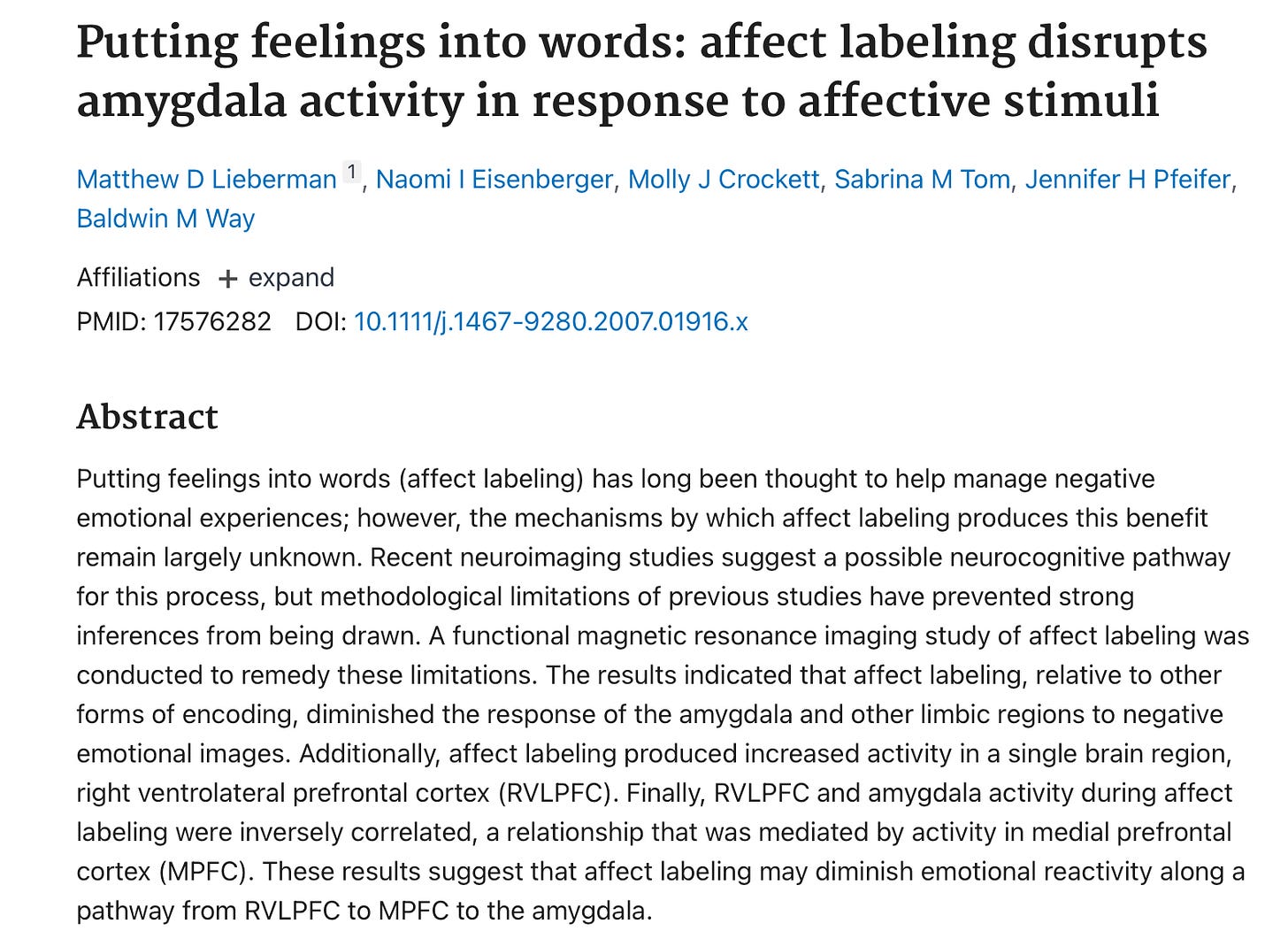Why the Sacrament of Confession Is Good for the Soul (and Brain)
A psychological look into what happens when we confess…
Confession isn’t just a sacrament it’s a sacred meeting of mercy and mind, where divine grace meets psychological release. In a world obsessed with healing and wholeness, the Church has offered the truest path all along.

“If we confess our sins, he is faithful and just and will forgive us our sins and purify us from all unrighteousness.” (1 John 1:9).
Have you ever noticed how much lighter your heart feels after a good conversation with someone you trust? How the simple act of speaking something out loud can feel like release? “Name it & Claim it” as they say.
Now, imagine that moment infused with divine grace. That’s Confession.
And far from being outdated or irrelevant, the Sacrament of Reconciliation speaks deeply to every one of our needs: spiritual, and thus psychological.
In a world overflowing with talk of trauma, healing, and self-awareness, Confession is not only spiritually valid, it’s psychologically wise. After all, God did make our brains as well as our spirts!
This is not an attempt to get you to go to confession by appealing to the ethos of modern day psychology (which, believe me, has its pitfalls…I studied it, loved it, believed in it, and eventually had to take a step back). Rather, this is an exploration of how, through the lens of faith, everything begins to make sense.
The Spiritual Dimension: A Meeting with Mercy Itself
As we heard recently, on Pentecost, and in John 20:21-23, Jesus breathes on the disciples and says, “Receive the Holy Spirit. If you forgive the sins of any, they are forgiven.” This is where we see the scriptural foundation for Confession. It’s not a man-made invention, but a divine institution from Christ Himself. When we confess to a priest, we’re not just talking to a man, we are encountering Christ in the person of the priest (in persona Christi).
Consider this: You watch this man - your priest - consecrate the Host. He is your earthly shepherd, a figure deeply loved and revered by your congregation. He is ordained by God, called to reflect the holy image of Christ. Now imagine kneeling before him, confessing the darkest sins of your soul. And then, with gentle authority, and without judgment, he says to you, “Your sins are forgiven.”
It is powerful and deeply healing.
The Catechism of the Catholic Church explains:
“Those who approach the sacrament of Penance obtain pardon from God’s mercy for the offense committed against him, and are at the same time reconciled with the Church” (CCC §1422).
Sin wounds our relationship with God, others (the Church), and even ourselves. Confession heals all three, and everything. It reconnects us to grace and realigns our hearts with truth.
The Psychological Power of Confession
Not to say that modern psychology is the end all be all of healing, but it does affirm what the Church has always known: guilt weighs heavily on the human heart, but unburdening oneself can be deeply healing.
In a 2014 study published in The Journal of Positive Psychology, researchers found that confessing one’s wrongdoings, even to someone who cannot offer tangible help, can still lead to emotional relief, decrease anxiety, and increase mental clarity. The very act of verbalizing remorse helps reorganize our inner world.1
Moreover, an older but still poignant example is that psychologists such as Carl Jung believed that denying one’s “shadow self” leads to neuroses. Bringing our darkness into the light; naming it, confronting it, and integrating it, are all essential to the health of our minds.
This mirrors the spiritual process of Confession, where we examine our conscience, name our sins, and invite the light of Christ back into our interior life.
Neuroscientific research has also shown that naming an emotion reduces its intensity.2 Confessing sin not only names wrongdoing but also acknowledges the emotional and spiritual consequences it has induced, thereby lowering the emotional charge and opening the door to peace. Specifically, “naming it & claiming it” reduces activity in the amygdala (the brain’s panic button) and boosts control in the prefrontal cortex (our calm, rational brain).
When Catholics confess sin, we aren’t just reciting a grocery list of guilt. We’re doing what the brain (and heart) craves: naming, externalizing, and releasing. It’s no coincidence that Christ didn’t just say, “Feel sorry in your heart.” He gave the Apostles authority to forgive sins out loud (John 20:21–23). He built into our spiritual life what our minds already need…expression, witness, and restoration.
Why We Need to Say It Out Loud
Some may ask: “Why can’t I just tell God I’m sorry in my heart?” While God certainly hears the prayers in the depths of our hearts, the human person is both body and soul. We were made for community and ritual…something Catholicism uniquely understands. As emphasized in the Catechism:
“Confession to a priest is an essential part of the sacrament… It is not merely a psychological exercise, but a sacramental act” (CCC §1456).
Yet, even though the Catechism emphasizes that it is not psychological, we live in such a “psychologicalized” world, we can’t help but look at it through that lens.
There is something powerful about hearing the words: “I absolve you from your sins in the name of the Father, and of the Son, and of the Holy Spirit.” These words don’t just reassure, they transform. They are efficacious. They do what they say, literally, metaphorically, and spiritually.
In our culture of affirmation and therapy, we understand the value of being seen and heard. Confession offers that, but on a truly wholistic level.
Mercy Over Shame
Let’s talk shame for a second…
We live in a culture obsessed with being “authentic” but terrified of being wrong. Confession invites us to tell the truth, not perform it.
Our God is a good Father. His commandments and institutions aren’t random rules meant to weigh us down, but gentle guardrails, like when an earthly father says, “Don’t touch the stove, sweetheart, it’s hot,” or, “Grab your coat, it’s chilly out there!” In the same tender way, our Heavenly Father tells us what’s good for our souls. And because He knows we’ll stumble, He didn’t leave us to figure it out alone. Instead, He gave us the beautiful gift of confession, His own divine way of saying, “Come home, all is well, let’s start fresh.”
Confession frees us from shame. The enemy whispers, “Hide. You’re too far gone.” Christ says, “Come to me, all you who labor and are burdened, and I will give you rest” (Matthew 11:28).
What a relief to know that no matter how many times we’ve fallen, the Church offers us a way back to wholeness and union with Christ. No long waiting list, no monthly copay, just grace, mercy, and freedom. Hallelujah!
If it’s been a while since your last Confession, this is your invitation. Not because you should be ashamed, but because God wants to heal you, and you deserve love and healing. He already knows your sins. He just wants you to hand them over.
St. Augustine once wrote: “The confession of evil works is the first beginning of good works.”
And maybe that’s the most beautiful truth of all: Confession is not about condemnation, it’s about beginning again. We go in ragged. We come out radiant. Neuroscience would say our stress has been lowered, our cognition sharpened, and our emotional equilibrium restored. The Church has always said: grace has done its work.
“Go to confession regularly. If you want to be like a clean mirror, pure and bright, that’s the way.” - St. Padre Pio
Here’s a helpful “How to” guide for confession: click here
“Then I acknowledged my sin to you and did not cover up my iniquity. I said, ‘I will confess my transgressions to the Lord.’ And you forgave the guilt of my sin.” (Psalm 32:5).
Torre & Lieberman (2014): Affect Labeling as Implicit Emotion Regulation, SPPS Emotion Pre‑Conference abstracts. Available: https://philpapers.org/rec/TORPFI
Psychological Science (2007): Matthew D. Lieberman et al., Putting feelings into words… Psychological Science, 18(5):421–428. PubMed link
PLOS ONE (2022): Levy‑Gigi & Shamay‑Tsoory, Affect labeling: The role of timing and intensity, PLoS ONE 17(12):e0279303. https://doi.org/10.1371/journal.pone.0279303








